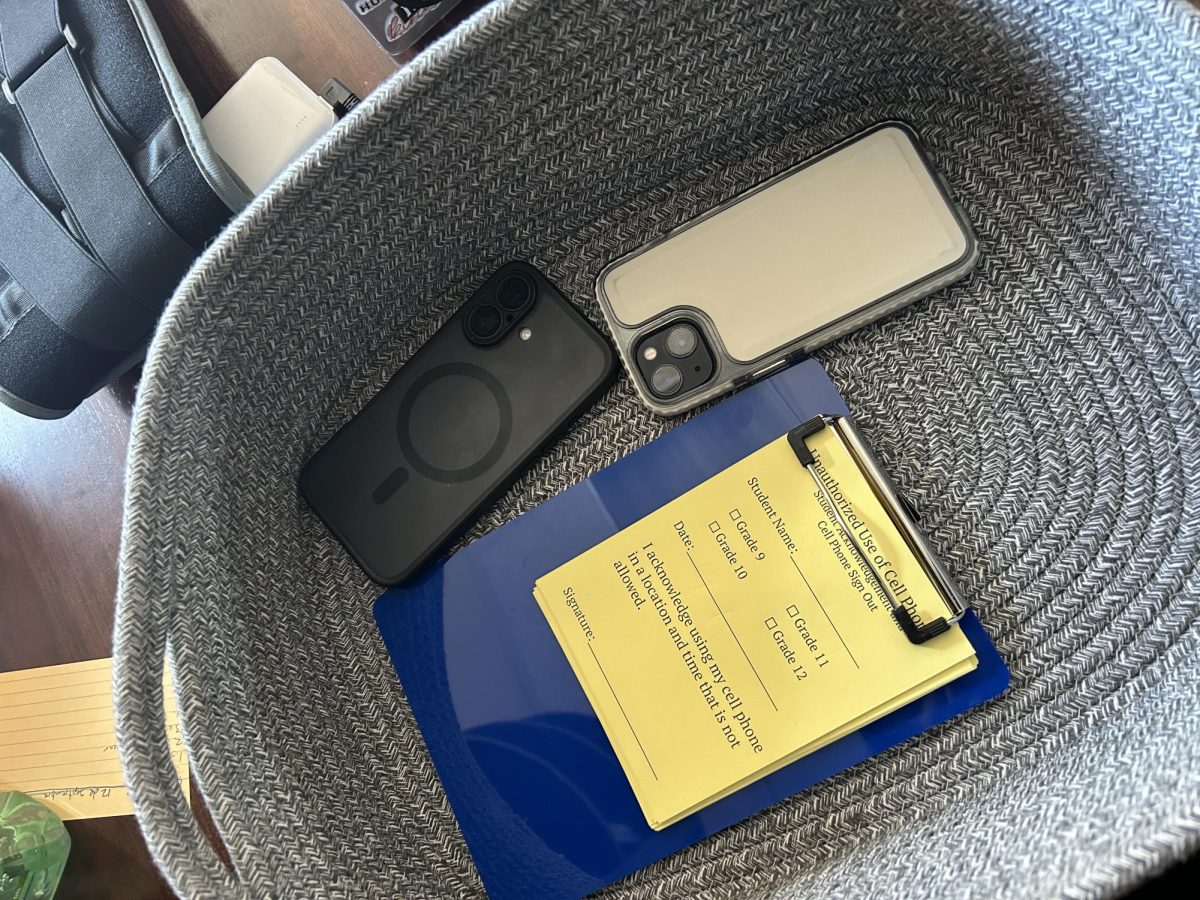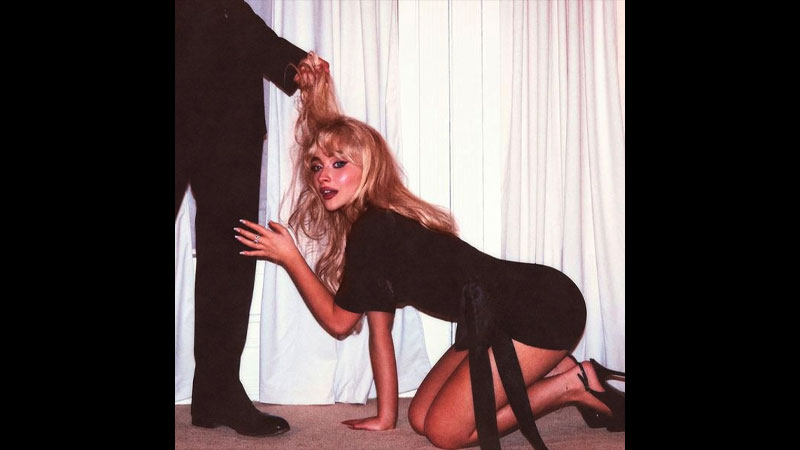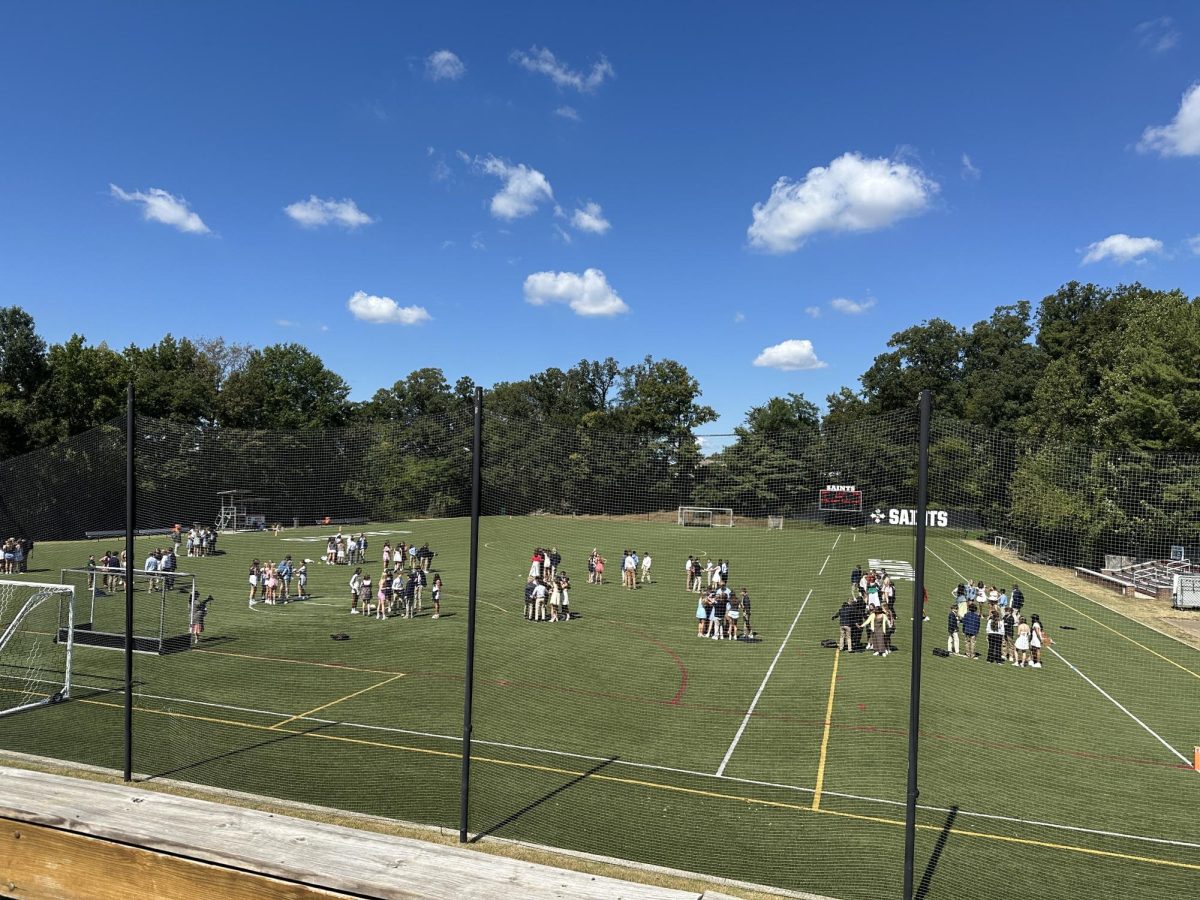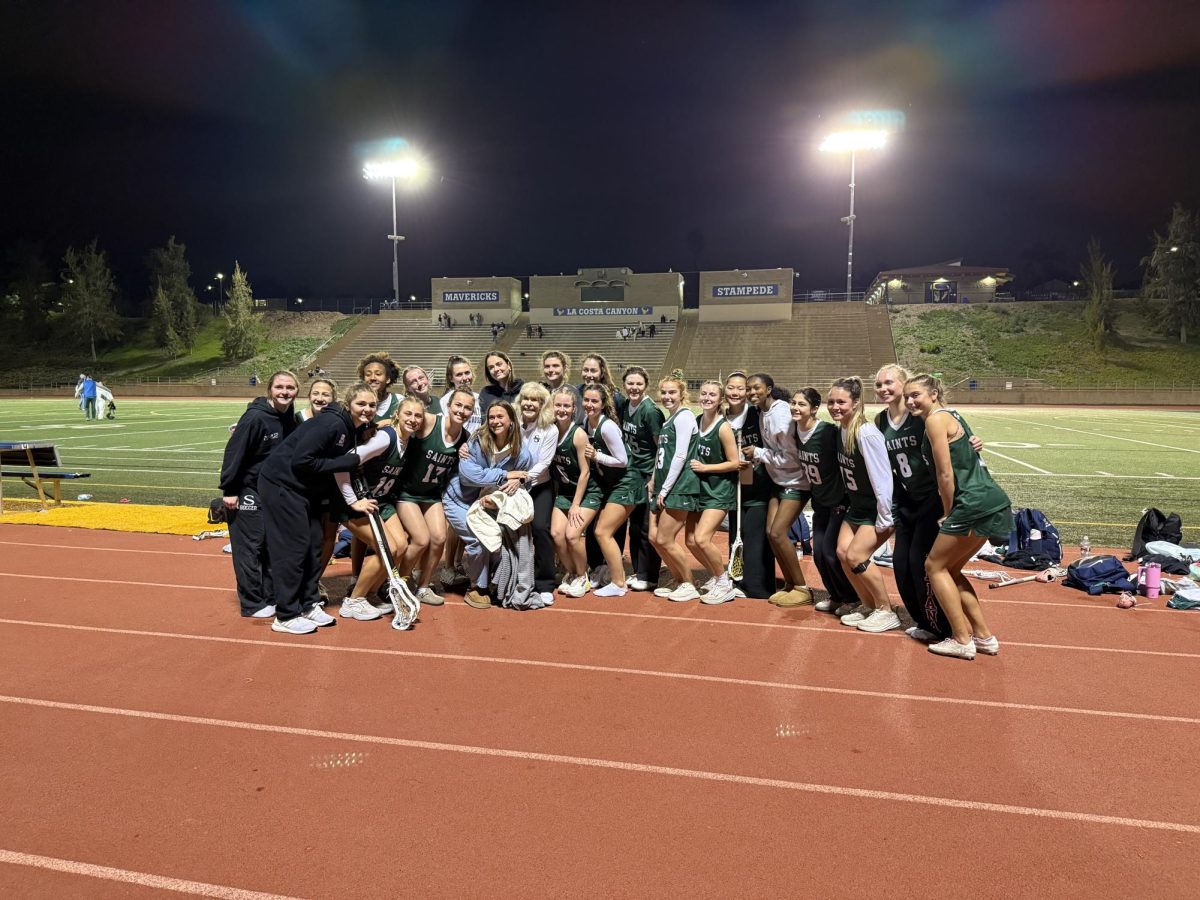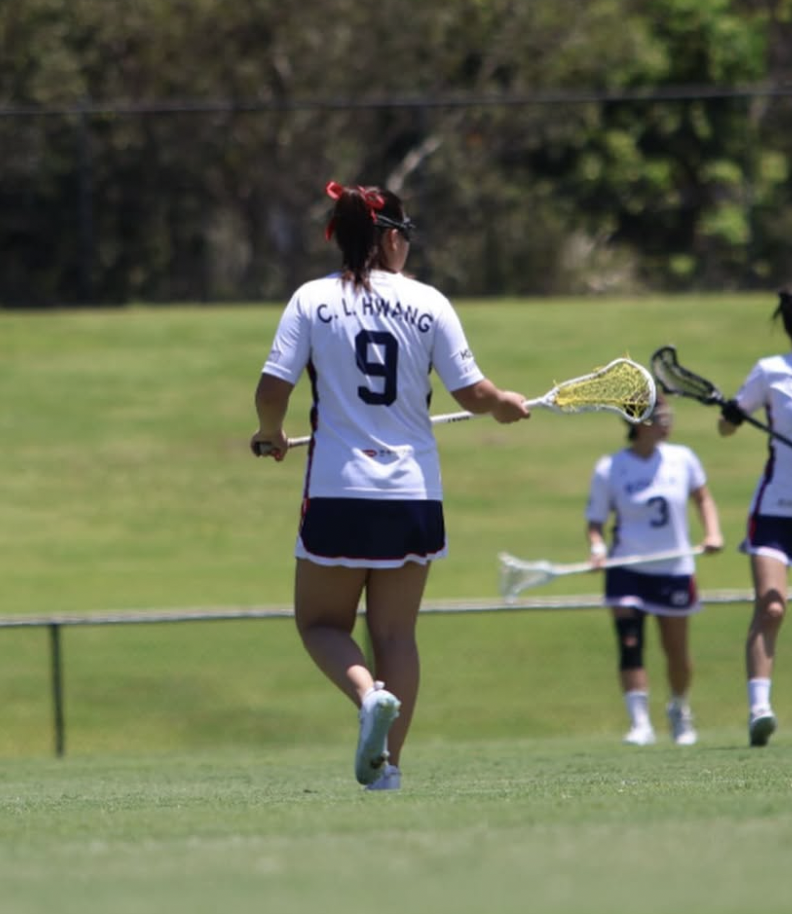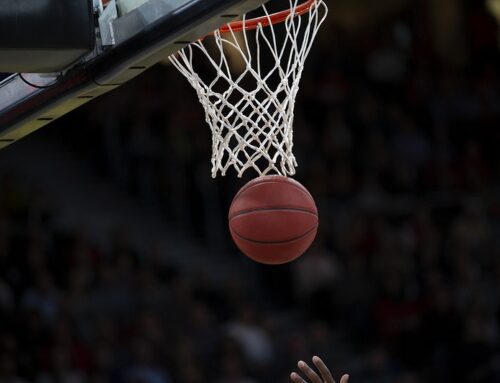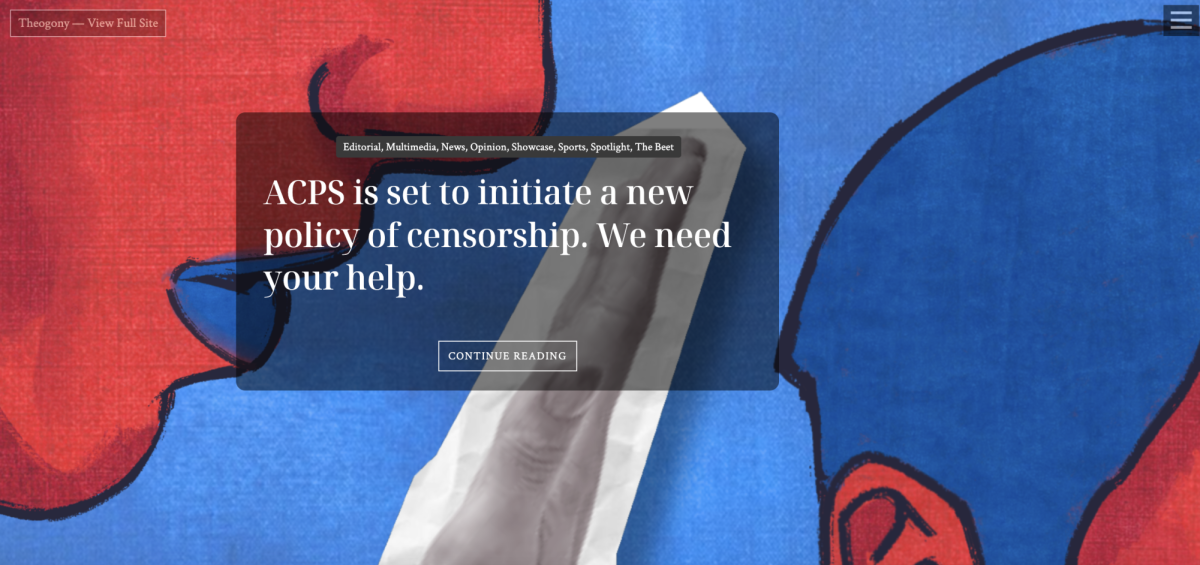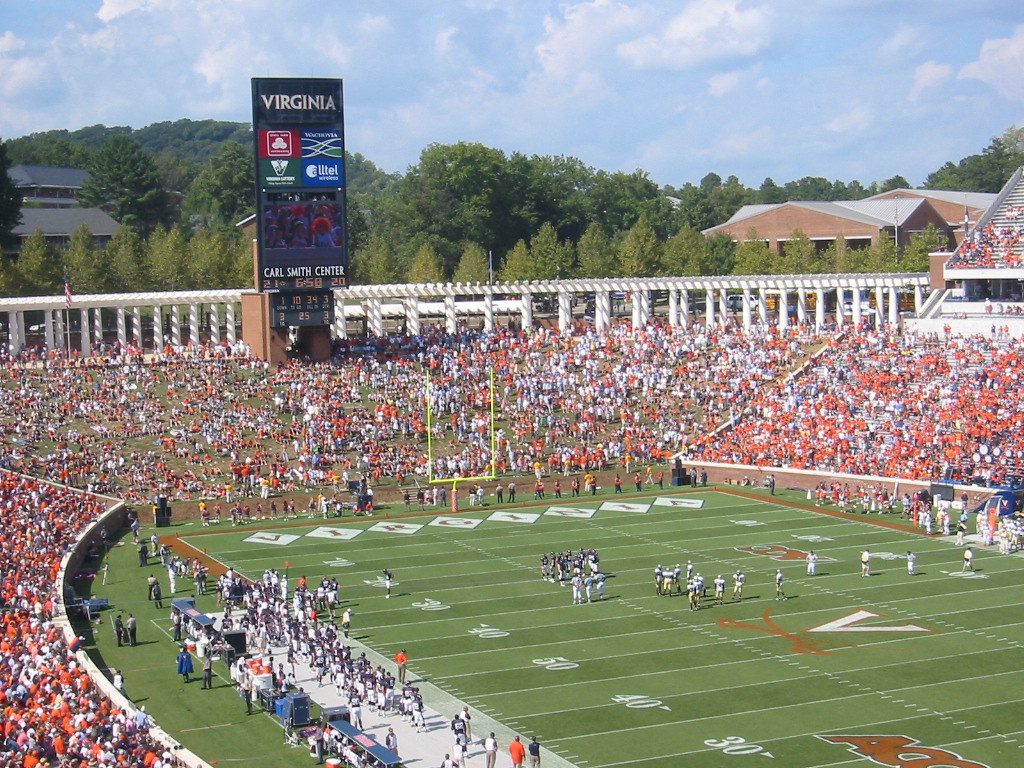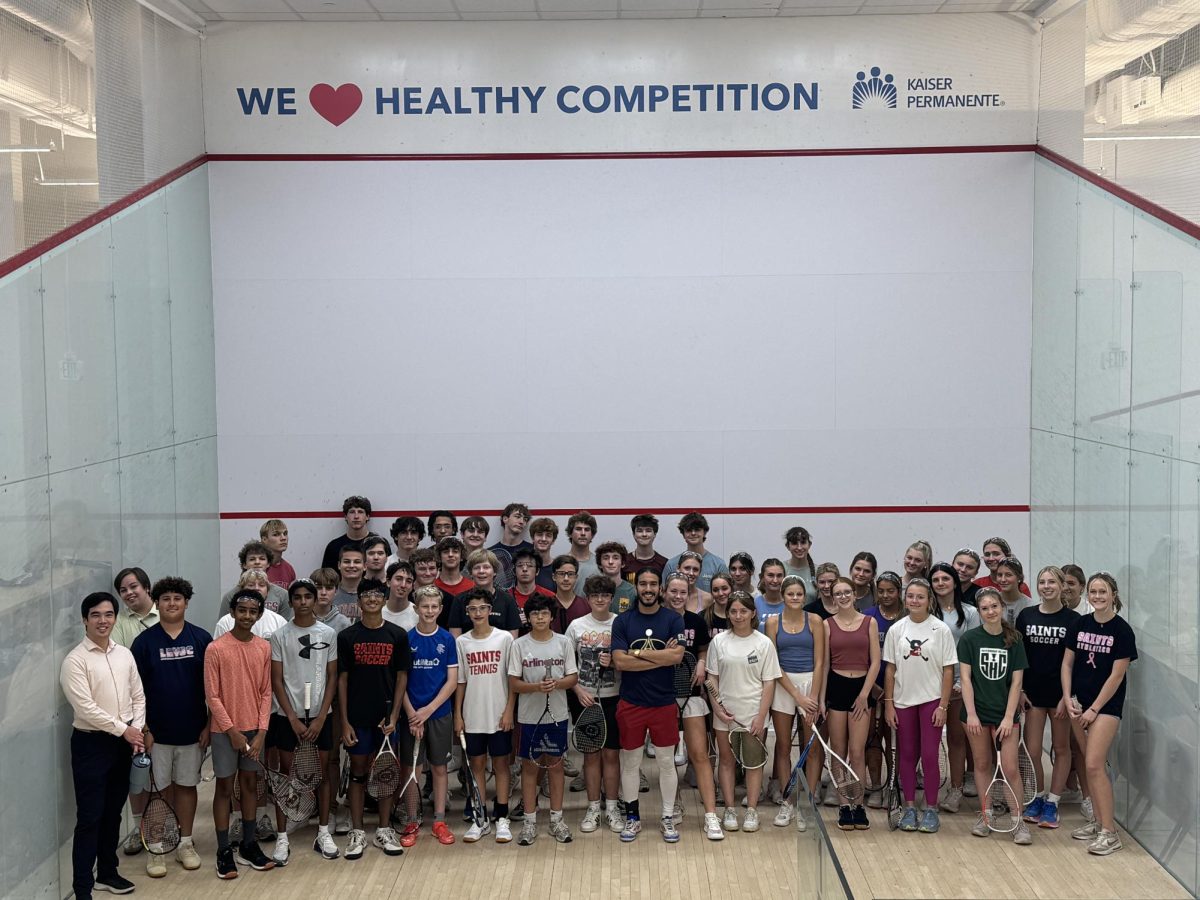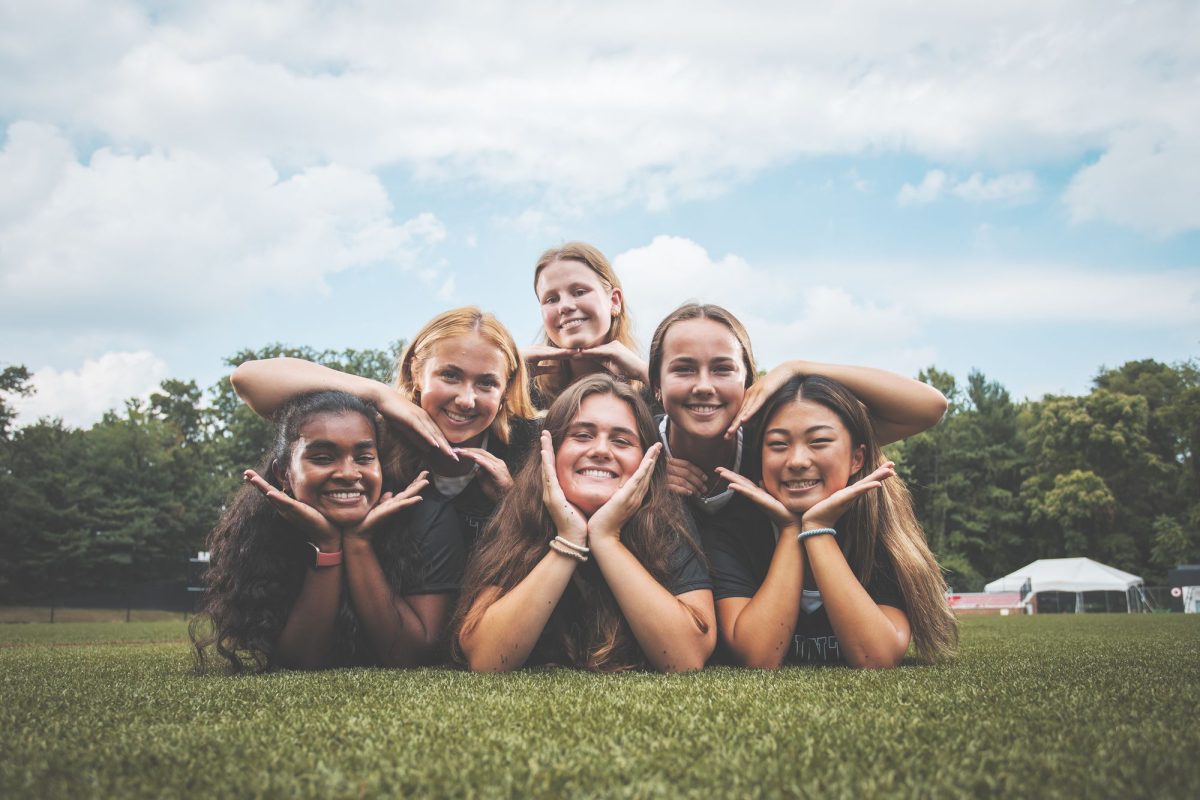In balancing textbooks and trophies, student-athletes juggle the demands of sports alongside their studies. This article examines the intricacies of the college application process and the differences between student-athletes’ and nonstudent-athletes’ experiences.
In the book, Reclaimed the Game, by Bowen and Levin, it states that “athletes are twice as likely to be admitted to an elite college as legacies and four times that of under-represented students.” While this may be true, how does that manifest directly in fellow SSSAS students’ applications to university?
One of the interviewees, Abby Musser, ‘24, is currently committed to playing lacrosse at the University of Virginia. In her interview she expressed her adoration for the sport and that she was prompted to start playing lacrosse in first grade because “my first-grade teacher played lacrosse at UVA. And I was like, I love her. I want to be like her.” This innate passion Abby had and continues to have is abundantly clear in the way she spoke about the sport and all of the positives it has brought for her; however, once she was approaching her sophomore year of high school, Abby started to receive letters of interest from colleges and it struck her that she could truly commit for lacrosse, the sport that she loved. This is also when Abby stated that the sport became more of a job and that it became harder for her to balance academics because lacrosse took up so much time.
Abby continued to say “I don’t think I could have gotten into Virginia if I didn’t play lacrosse […] there’s a couple of people in my grade that are smarter than me and have better grades than me that got deferred, but I got accepted with a merit scholarship to be able to play.” While grades or standardized tests scores are by no means an all-encompassing determiner of whether or not a student is “smart” or capable at succeeding at an elite university, this quote alludes to the theory that from the student perspective, student-athletes might have the upper hand when it comes to college applications. This also proves why the college application process might seem impossible for students who don’t play a sport because high grades are no longer sufficient. You must go above and beyond impossible standards.
Madison Sandy, a senior at SSSAS and an avid lacrosse player, added to the recruitment experience. Like many girls who play lacrosse, Madison started at a very young age. Madison was very open about how there were countless instances when she wanted to quit, but what pushed her to continue her journey was her realization that this was what she wanted to pursue. She states, “[lacrosse] has had its ups and downs where I wanted to quit at points. But at one point, I was just like, you know, I do want to play in college and use this as a vehicle to get to the school I want to go to because personally, I don’t think I could have gotten to Howard if I didn’t play lacrosse. Like, there are a couple of people in my grade who are smarter, smarter than me and have better grades than me who got deferred, but I got accepted with a merit scholarship to be able to play.” Even though she was able to get into her college of choice, many other athletes are not as lucky. When athletes don’t get recruited by the fall of their senior year, they often quit because there’s no point in playing anymore.
Head boys lacrosse coach Tim Dodds has been a very involved member of the SSSAS community for 13 years. He has been the head lacrosse coach for 8 years. Along with this, he is a science teacher and an associate dean of students. Throughout his time as a head coach, boys lacrosse has won numerous titles and awards from VISAA and IAC. Even though over half of the school population knows him as a coach, he believes it’s most important that he is a teacher first, and a coach second. During an interview, Mr. Dodds gave his perspective on student-athletes, the school’s view on sports, and sports recruitment.
When it comes to college recruitment the pressure to think about it has changed in the last couple of years. He said “Yes, and I believe [the college recruitment] has gotten worse over time. I don’t think that is driven by kids necessarily. I think they’ve [Recruited students] inherited that from home, from a culture around the sports generally, that is preying on younger kids.” When asked about the motive he said, “The goals that people have in mind, in my opinion, are not what they should be.” Even though official recruitment isn’t until September 1st of the junior year he said “I have seen students feel the need to commit earlier and earlier.”
Another student-athlete who added to this perspective was Luke Pascal ‘24, who will be playing lacrosse at Yale in the fall. He says “In the back of my mind, I’m thinking maybe I don’t deserve this as much because these guys are putting in all this work academically, and they’re doing so well in these classes. But at the same time, I think about how much work that I’ve done.”
The legendary Coach Jenkins, who has been a part of the school faculty since 1971 and founded the girl’s lacrosse program in 1976, provided some alternative insight into the lacrosse experience. While Abby previously expressed that she felt the college process was inherently easier for her solely because lacrosse acted as a vehicle to get into college, Coach Jenkins described the sport as being more of an asset to a student’s resumé rather than being the only gatekey. For instance, Jenkins said “I think academically, you could have a number one or two, person in the school, perfect at everything, and not get into a school. And then you have an athlete who’s busted her butt has good grades, kills it on the field, and she gets it.” This illustrates that perhaps the process isn’t as black and white as it may seem from the outside perspective and that sports may not be the only determiner if a student is a valid applicant to the university. Similarly, Coach Jenkins proceeded to say “If you’re going into an academic school, you have to keep the level that they’ve recruited you at.” So if a student does get accepted into an elite college, they mustn’t let their grades slip simply because they’re “verbally committed.” This contradicts the students’ opinions and potentially debunks the idea that student-athletes have it easier at school, and can let their grades go the moment they’re recruited.
Head Athletic Director at SSSAS, Coach Stephanie Koroma, provided some interesting insights into the world of collegiate athletics and the recruitment processes. While many students and parents speculate that getting into elite colleges through athletics is easier than getting in through academics alone, Koroma believes this is “more of a myth than a reality.” She believes that if you want to get into an elite college via athletics, you need to be “insane” and be in the top 1-5% of your sport even to be considered for college recruitment.
She qualifies this idea by saying that athletics do help a lot of athletes to get into these elite colleges. For example, if you are being recruited to play at a Division I school, you might only need to meet their minimum academic requirements to be recruited and play for their team. When asked if SSSAS pushes athletics more than academics, she provides a definite “no” as an answer. She provides evidence that around 25 students compete at the next level, compared to the over 100 students who are in the graduating class. Dr. Carter, the head of the college counselor’s office, provided more input saying, “There’s roughly 30% plus, of every graduating class, [that] will go and play their sport in college.” That number is fairly small, and due to a fixation on college applications that number may seem more inflated than it truly is.
Koroma adds that the balance between academics and athletics is founded on the identity of SSSAS, a college preparatory high school that values arts, athletics, academics, diversity, and community. She wraps up her thoughts by saying that the faculty is very focused on “making sure that everyone is having a good academic experience and meeting academic expectations.”
Although our interviewees’ were insightful, these local examples only brush the surface of preferential treatment due to athletics. A Forbes article touches on just how lucky these student-athletes are. Scott White, the author of College Athletes Get Way More Than A Slice Of The Admissions Pie, remarked this about his personal college recruitment experience, “I submitted my application a day before the deadline. Two days later my coach called informing me that I could not tell anyone, but that I was going to be admitted. That was barely enough time to peruse my test scores and transcript and certainly not enough to even consider my other activities, my recommendations, or my essays.” This student’s other qualifications, besides athletics, were barely a factor in their admission. What about the students who receive the best test scores and recommendations, or have the best essays?
On a related note, speculation amongst students that athletes receive certain leniencies or freedoms that non-athletic students don’t flow around the school. In the questionnaire nearly 40% of the 43 students that responded responded “yes” to the question that asked whether or not they believe student-athletes receive special treatment due to their athletic status. Additionally, in an anonymous questionnaire, a student recounted that “a few basketball players who should have been expelled sooner because of what they did but they remained on the team because they were good.”

